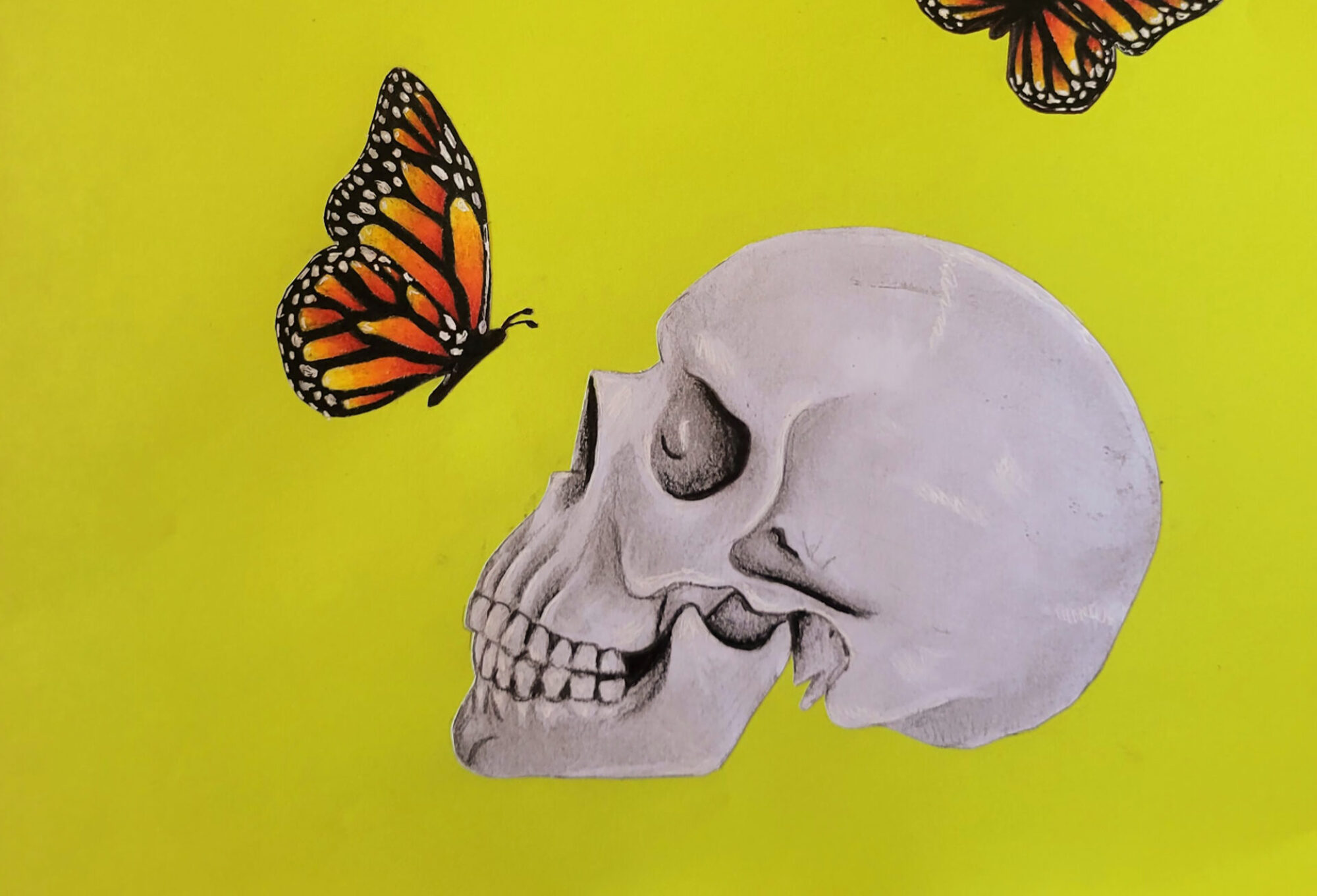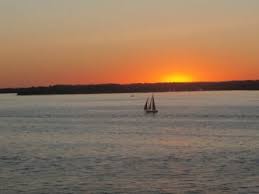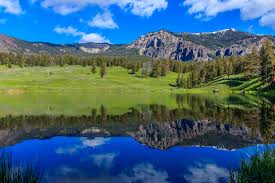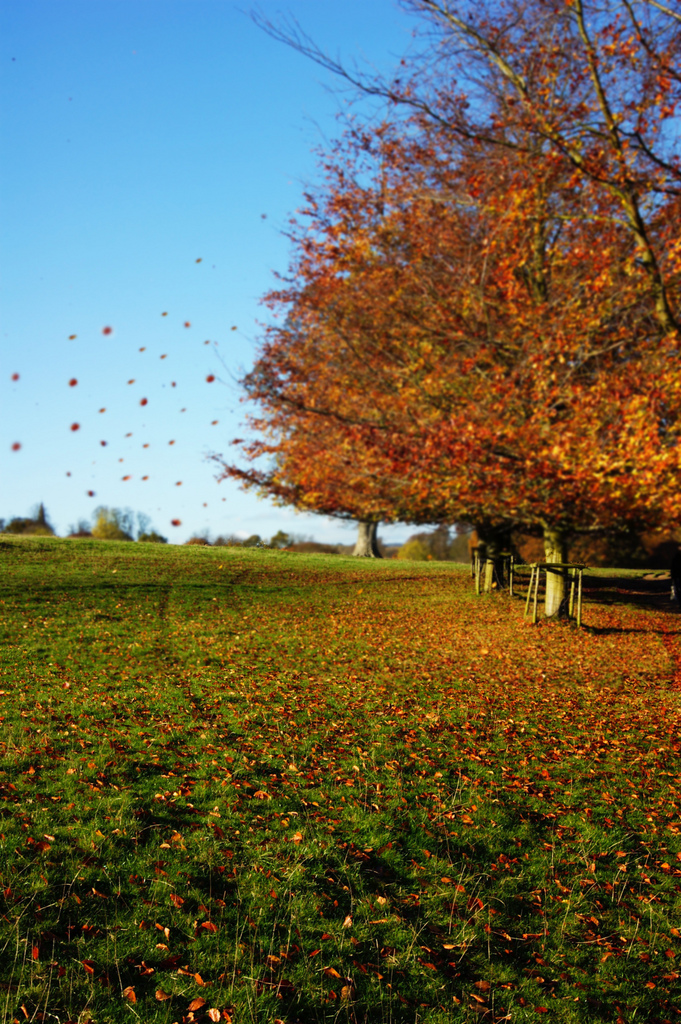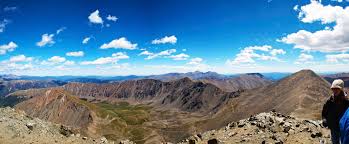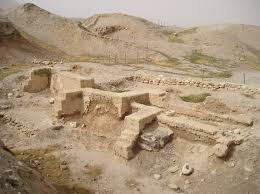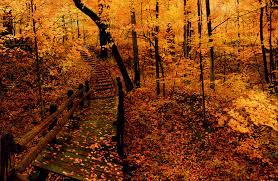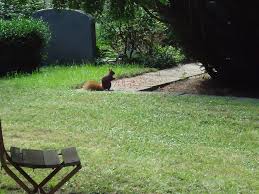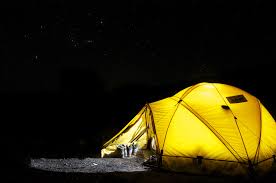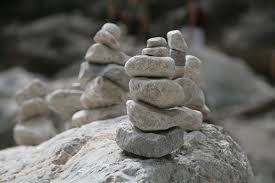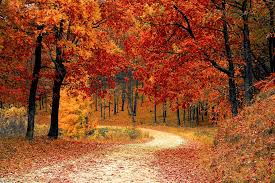The guy running the “real archeological dig” has me take the Number Nine bus to a non-stop alongside the freeway. He instructs me to tell the driver to pull over at mile-marker six. I wear khaki hiking pants, rolled and buttoned mid-calf, hiking boots, and a black t-shirt. The summer air has an unexpected chill to it, and I wish I’d worn a jacket, or something with pockets for my hands.
“Here we are,” the bus driver says, pulling onto the berm. I emerge from the bus alone, on the berm, with only my cell phone, some cash, and a photo I.D. I wonder when the others will arrive and notice it’s already 5:35 p.m. I didn’t think to bring a taser or pepper spray, but I wish I had.
A gray Jeep slows on the asphalt and pulls over, its front dipping into the ditch marking the beginning of the field, its sides somewhat obscured from the road by tall grasses. A man steps out, all six-feet-some-inches of him. He wears faded jeans slung low on his lean hips, a hunter-green long-sleeved shirt, a plain baseball cap that covers peppered brown hair, and hiking shoes. I judge him to be somewhere between thirty-five and forty.
“Howdy!” he says, shifting a bag of rattling tools and a large spade to his left hand. “Miriam?”
“Ted? I wasn’t sure I had the right place,” I say. He extends his free hand for me to shake. It is warm and soft. I notice a pair of leather gloves hanging from his back pocket.
“Wow, you’re much prettier than I expected.”
My neck tenses. I have been called ‘pretty’ only a handful of times and never by a stranger. I feel my armpit drip with sweat. Ted is handsome. Not like Harrison Ford handsome. He’s clean shaven and smells like baby laundry detergent. I stare at his perfect row of white teeth as he smiles.
“And the others?” I say, fingering my cell in my back pocket, considering an Uber ride home.
“Others?”
“There are other people on this dig, right?”
“Oh, yeah.” Ted searches the horizon, as though remembering these nameless ‘others’ who had once filled the class. “They had, uh, another engagement.” He turns and smiles, his eyes inviting, like those of a guy passing me on a Sunday hike, out with his black lab, enjoying the stillness of the woods. “Just us.” He winks. “Sorry, not sorry.”
“Oh.” I shrug, letting my hand fall from my phone. “No worries,” I say, like someone else. Like a festival-going hipster.
When I filled out the form linked in the Facebook ad, Ted emailed me within the hour. I considered for a moment that “Ted” is an infamous serial-killer name. He wrote emphatically, Hello, Mariam! I have one spot open for an evening group dig this Thursday at 5:30 p.m. Reserve about three hours and wear comfortable outdoor clothing. Please respond if you are interested in signing up and pay via PayPal on the link below!
I had so many questions: Where do I meet Ted? Do I bring my own shovel and brushes? Where do I buy a shovel and brushes? How many people are in the class? Are we digging on private property? His own, maybe?
My co-worker Jen, standing over my shoulder when I got the email, said, “You’re not thinking of doing this, are you?”
“It sounds fun,” I said.
“It sounds stabby. Or rapey,” she said.
“So, I shouldn’t go.”
“I dunno. He might be cute.”
I paid without asking the questions, and Ted sent me instructions with too many exclamation points in them.
But Ted doesn’t seem like an exclamation-point kind of guy in person. Not out here. Even with the teeth. He does seem like a quarter-life-crisis kind of guy, though. I make assumptions: he went to Harvard business school and then dropped off Wall Street two years in to be a rafting guide in Colorado—that is until he realized he kind of sucked at rafting, that he was way better at digging dirt and brushing dust off old poop pots.
Ted turns and walks toward the worn path, whistling a light tune anyone would follow. I know I should call the Uber. I feel like my next step could take me somewhere.
“Coming?” he says, turning only his cheek toward me, a half smile. He waves his hand over his shoulder—he will not wait for me. I take a full breath, clench my fists, step onto the grass path, and walk into the horizon.
Ted’s whistling is beguiling. I don’t even notice we’ve walked about a half-mile on a narrow dirt path, past some full-grown oak trees, until the low sun pierces my eyes.
“What do you expect to find today?” I ask.
“Oh, you know.” He pulls the gloves from his back pocket and slips them on his hands. The shovels and brushes rattle on his back as he strides, clinking together like a hobo’s pan and tin cup. “Sometimes we find native clay pots. An arrow head or two. Maybe something like that.” He turns his head slightly. I see a glint in his eye—the sun’s reflection. “What do you expect to find today?”
It is one of life’s questions. I don’t answer.
“How many times have you done this?” I say instead. I want to ask all the other questions, like whether he’s married, if he has any children, whether he’s close with anyone, but I don’t. I ask interview questions, as though I haven’t already bought the ticket and tromped that first piece of grass off the freeway.
“A few.”
The air is still, save birds fluttering hither and thither. I’ve always wanted to use that phrase, hither and thither. In accounting we use acronyms, like ETA, ULD, AR, LLC. We wear layers of polyester clothing, the office a deathly temperature fit for a sub-species of men. Our throats scratch when we talk, and we don’t talk much. Thus, the acronyms.
“So, what is Miriam like when she’s not following strange men through unmarked fields?” Ted says, glancing back.
“Sitting next to stranger men in cubicles,” I say. He laughs. I can’t help it—I fall for his self-deprecation. He has a nice laugh.
We walk twenty or so more yards, past a sign that reads Private Property, No Trespassing. Ted holds open a loose spot in a barbed-wire fence for me to climb through awkwardly and slowly. I count nine years since my last tetanus inoculation. We enter a clearing, speckled with limestone boulders, hedges, and dirt mounds. About two-hundred yards in the distance lies a line of deciduous trees. I can’t make out any buildings.
“Here we are,” he says. I stop and stretch, making mental notes about the direction we’ve gone (south), how far on foot (approximately a mile), the terrain (mostly flat and open, a dirt trail through tall grasses), should I ever need to remember. The ground on the site has been dug before, in neat four-by-six-foot sections with a flat-edged shovel—I can make out a clean edge—like rows upon rows of fresh graves.
“You sure we’re allowed to be here?” I ask.
“Oh, yeah. No worries.”
“It’s private property.”
“I worked out a deal.” He pulls off his tools and unbinds them. “A couple weeks ago I found some artifacts around here. I was with a few young ladies from the university. They loved it,” he says, like a man who holds forest-bed orgies under super moonlight. He looks up just long enough to wink and smile. I picture girls in high pony tails, low scoop-neck t-shirts, and Daisy Dukes out here pecking at the dirt with the point of their spades. I shudder, feeling both revolted and jealous. Maybe even a little afraid. I remember some discussion in the spring about a new self-defense startup for such girls, and I wish now that I had taken one of the classes. But I am not a co-ed. I’m a middle-aged woman wearing a loose chignon with frayed grays around her temples.
“What kind of things do you do for fun?” he says, and I bristle, thinking again of the orgies under moonlight. “Dig in the dirt much?”
My mother rented a plot in a community garden once, outside our rented town house. She grew tomatoes and cucumbers and lettuce, and I remember her outlining rectangles like these, each to keep track of what she’d planted where. Later I realized the cucumbers take over all of it. “No, not like this.”
Ted shovels an outline of a new work area, the same rectangle as the surrounding ones, and as he works a bead of sweat forms on his brow. I find myself taking deep breaths, watching his arms flex under his shirt, noticing his back muscles grip cotton with each move.
“Here, sift through this dirt pile I’m making. Make sure there’s nothing interesting in it,” he says, pointing to the growing pile behind him. I squat down, my eyes level with his backside, and grab a handful of dry dirt. It slides out the bottom of my fist, now like an hourglass. “You just might be a natural,” Ted says, and I blush.
Ted and I talk to pass the time—about high school and first dates, about junker cars and strange pets we’ve owned. He gabs more than I would’ve imagined, growing quiet only when describing a brown-eyed girl who lived next door. I think I should respond, to fill the void.
“You liked her?”
Ted seems not to hear. He bends over and digs a dozen or so strokes. In the middle of a shovel-full he remembers something that sparks the conversation again, a summer spent camping in Wyoming with his uncle. He talks feverishly about butchering his own deer. He is so youthful and excited about it all that I almost forget that he has killed and slaughtered a deer.
“—its entrails fell out like—” I hear before the horizon captures me, its large, jagged rocks and bushes like a rural skyline. A fantasy emerges: A storm has rolled in, and we are trapped in the woods. We need to make shelter. And huddle. We must huddle for warmth. Ted’s scruff has grown. I feel it on my chin as I shiver. He rubs my arms, and—
“I’ve never told anyone that,” Ted says.
“Hmm?” I’ve missed something.
“I mean, no one knows.”
“Oh, wow. Okay,” I say, now trying to remember the last thing he said, wondering if it was something clandestine, illegal even. I nod, but he doesn’t look at me. He digs instead, his sleeves now rolled up his forearms, his pace quickening. He glances at the sky, at the horizon where the sun begins to dip, where I had been staring when he confessed.
He wipes his forehead and meets my gaze. “You want to trade?” He lifts the spade toward me. I pause, staring at the tip of the blade, maybe studying it for marks or something. I stand, take it from him and hold it like a shot gun, feeling its weight in my hands. I nod, lean over, and dig. It’s more difficult than I imagined, the dirt hard and dry and unforgiving. I feel sweat beading in my cleavage and worry that I smell. I wonder if this is Ted’s workout.
“Does it ever get easier?” I say, leaning in, pushing the spade into the hard, dry soil with my boot heel.
“Easier?” He laughs. “This is fun for me.” He fiddles with his brushes. I am so focused on creating the hole I don’t notice if he’s made any progress.
“I didn’t think it would be so violent,” I say, my arms aching. I have dug a sizeable hole. We haven’t found one artifact.
“Most things are, aren’t they?” He laughs. I don’t understand the joke. I am breathing heavily now: in, out, in, in and out. I feel dizzy. Do I imagine a buzzing sound? Birds, maybe? Hawks overhead? I squint into the sky, getting only an eyeful of sun.
“Hey, why don’t we take a little break?” he says, leaning over and reaching into his left sock. From it he pulls out a flask. He shakes and uncaps it. I smell whiskey. He takes a long swig and holds it out for me. I could take it—I am only an arm’s-length away—but what then? Would we sit on a boulder and watch the sun set?
Was it too much of an impulse, coming here? I wonder. It was a damned ad on Facebook. An ad! I’d been riding the Number Six bus to work last week, like I had every day for fifteen years, scrolling through my Facebook feed, when a man, holding a morning paper under his arm, climbed aboard. I’d noticed him before, this gray-haired man still riding the bus to work, still reading a physical paper. He passed me and chose a back seat. I made some assumptions about him: he still sits in a cubicle; he often works late; on Tuesdays he eats lunch at Applebees; he has a secret life—some hobby or activity he does—that maybe his wife doesn’t even know about. In the moment I grew jealous.
That’s when I noticed the ad. You, too, can find hidden treasures! I clicked on it. The man with the paper coughed behind me. The bus jerked to the left, and I was forced right. I reached for the seat in front of me. The driver yelled, “Shit, man!” slamming his foot on the brake, leaning back so that his bald spot reveals itself to the dozen passengers behind him. The tires squealed. A woman screamed. In the street, a dog barked and then yelped. It is dead, I thought. I didn’t want to know. I gripped my seat. I took in a quick breath and held. This is it, I think. I will die today, in this rolling coffin of a life.
What did I know, then? Nothing. It was another life. She, a different Miriam.
“Aren’t we running out of time?” I ask.
Ted caps the flask and returns it to his sock, shaking his head. He is disappointed.
“I’m not.”
“What’s that supposed to mean?”
“Nothing. Nothing.” He pulls the flask back. I stand, my arm resting on the planted shovel, my head cocked to one side. I’m tired, but I don’t drop the shovel. In the quiet, I study Ted: the sharp edge of his jaw casting an odd shadow, his pristine hiking boots, the brushes sticking awkwardly from the tool bag that, admittedly, might not be brushes at all. I feel tired. Very tired. I do want to take a break.
“Look,” he says, using his hands to talk, “I just meant that I’ll be back. You aren’t planning on coming back, are you?”
It is one of life’s questions. I don’t answer.
I think about the man with the paper, on the bus. About his secret life. Gambling? Jumping from planes? A girlfriend? A boyfriend? It would’ve been nice to have known him, I think—to have talked to someone through all those red lights between my apartment and the cubicle.
“Give me a swig,” I say, reaching for the flask Ted digs from his sock. I down a large gulp, the alcohol burning my throat, the low sun piercing my lashes—closed now like a Venus Fly Trap. The tonic tastes like death. Like all the countless things that have perished here, some deep and sand-like, some fresh and foul. I wonder which I will be. One of life’s questions.
I don’t answer.
I drink.
Jody Gerbig is a mid-forties, Midwestern woman raising three toddlers and a writing career. Her recent work appears in South 85, VIDA: Women in Literary Arts, and Litro Sunday.
